Gulls, eagles and buzzards
The last two weeks around our eagle hides were very eventful. Following the exceptionally good December, January was more quiet with the White-tailed Eagles visiting the hides less frequently. In February the activity was/is much better again and now eagles regular visitors plus a few extra photo subjects!
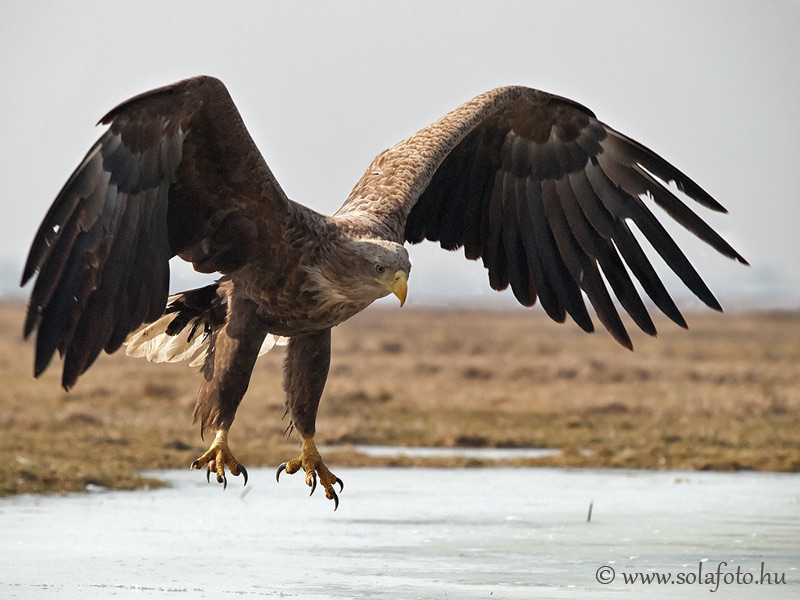
Adult White-tailed Eagle (February 2011) Photo: László Sóti
There was a short period of warm weather when gulls returned to the Hortobágy area and they also visited the hides daily in good numbers. If gulls are around the eagles are less keen to get close but they still do. The gull action photography is something amazing though and our guests certainly enjoyed some excellent moments in the hides!
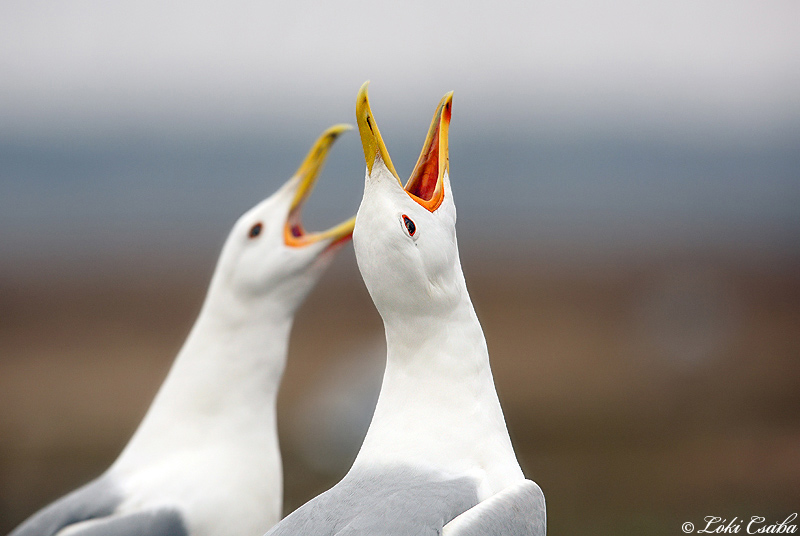
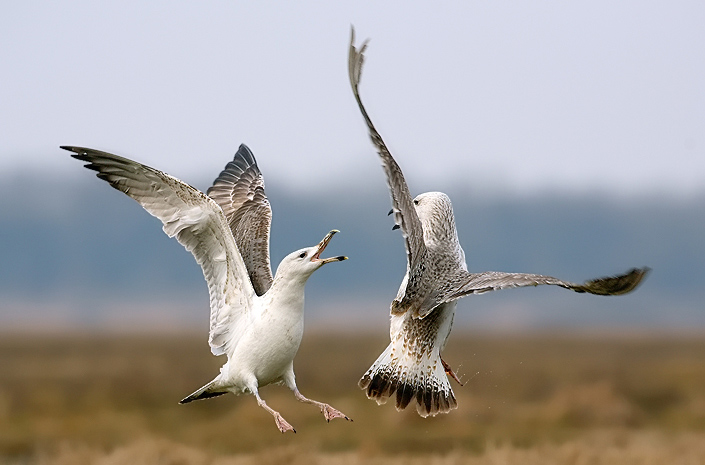
Calling and fighting adult Caspian Gulls (February 2011) Photos: Csaba Lóki
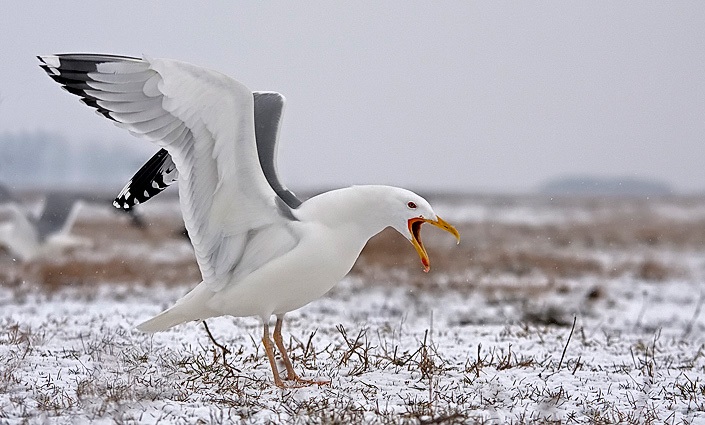
Adult Caspian Gull in front of the hide (February 2011) Photo: Attila Szilágyi
Common Buzzards are regular with up to 11 individuals showing. They were regularly fighting over food when several birds were around thus allowing great photo opportunities. Rarely even the scarce Rough-legged Buzzards visit the area.
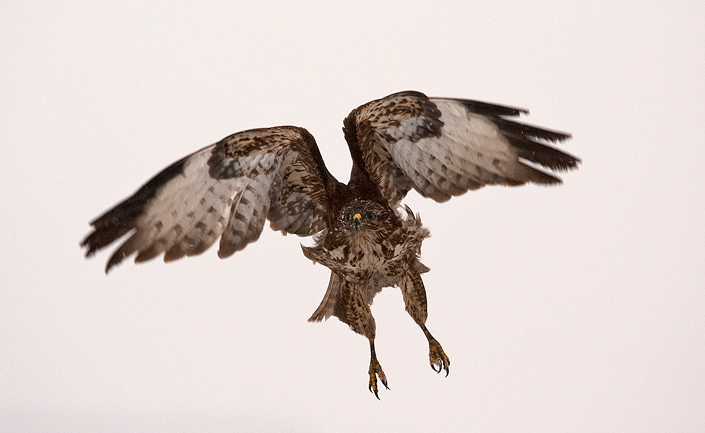
Common Buzzard (February 2011) Photo: Attila Szilágyi
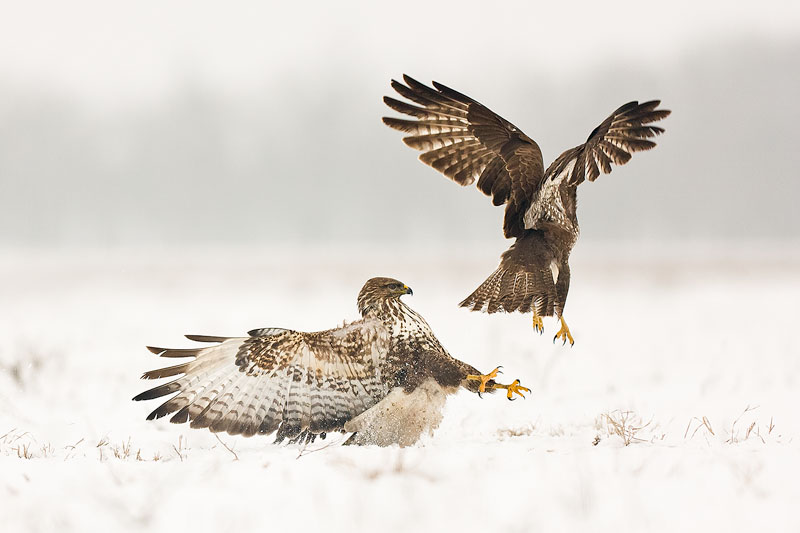
Fighting Common Buzzards (February 2011) Photo: Joan Roca
Sakertour team
Owl nest-boxing 2011
With our friends (Balla Dániel, Molnár Szilvi and Vasas András) the Sakertour team placed out a Ural Owl nest box in the Bihar Mountains in Romania, but near to the Hungarian border, to a location just a little bit more than two houres drive from the Hortobágy. We have a good chance to attract the owls into the nest box, as the surrounding mature beech forest is an excellent habitat for them with several observations from the previous years.
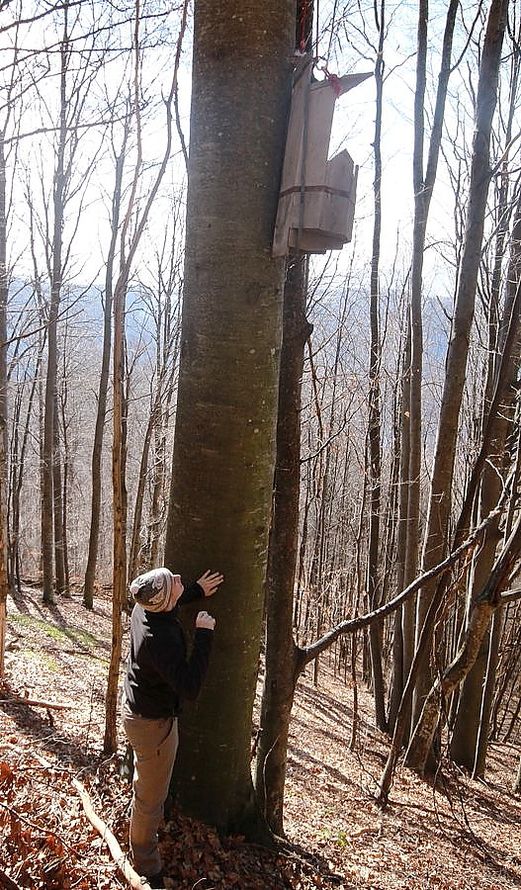
Balla Dániel is helping from the ground
Photo: Gábor Simay
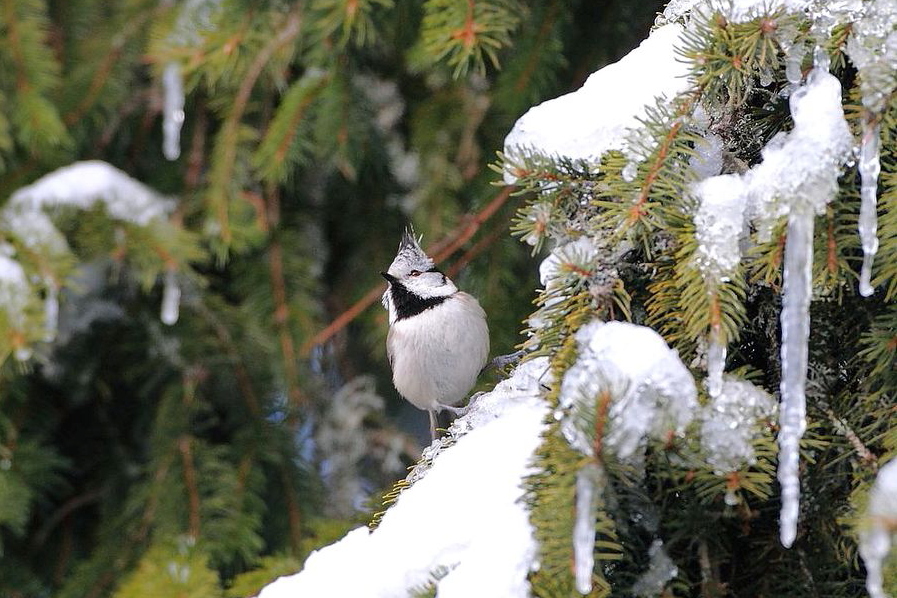
Crested Tits are among the commoner birds in the higher, spruce forest region
Photo: Gábor Simay

The higher montanous areas were still snow covered, and the landscape was beautiful…
Photo: Gábor Simay
Sakertour team
Bird count on the Carpathian lower Danube 2011
We made our annual winter waterbird count on the lower part (Carpathian Basin section) of the River Danube from Orsova to Bazias in Transylvania. This c.130 kilometer stretch of Danube usually holds 25,000-30,000 waterbirds in winter. Numbers also depend on ice cover of the upper Danube sections (mainly in Hungary) as well as the weather generally.
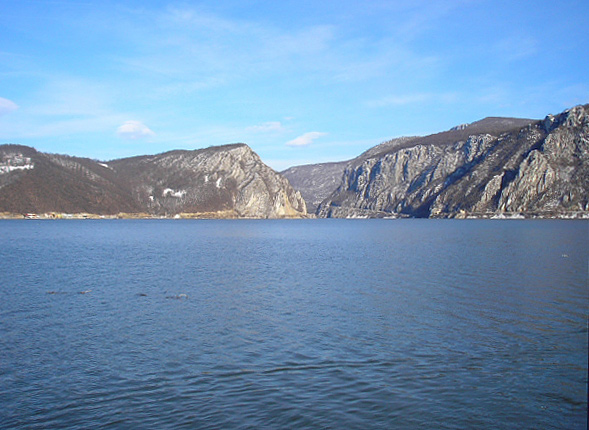
The Kazán-pass along the Danube Photo: Zoltán Petrovics
This year the count was only 18,459 waterbirds, of which the outstanding result was the record number of Smews. We counted a total 2,062 wintering birds of this lovely bird. The only species which was far less numerous as usual was the Coot. We only counted 1542 individuals which barely compares with the 8000+ last year though the water level of the Danube was very high!
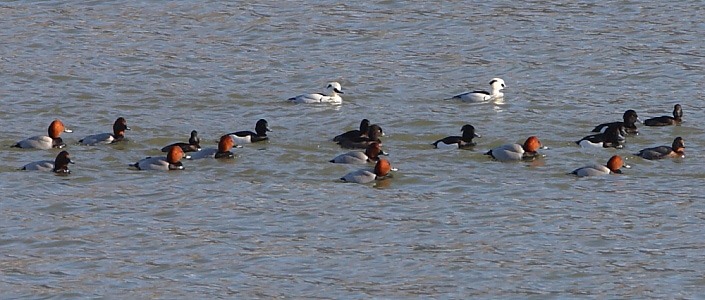
Smews in a mixed diving duck flock along the Danube Photo: János Oláh

Velvet Scoters Photo: Dániel Balla
Other highlights included a Bernacle Goose (very rare bird inTransylvania), 5 Scaup, 3 Velvet Scoters, 7 Red-breasted Mergansers, 47 Goosanders, Sombre Tits and several Cirl Buntings. The latter two species are rare and restricted breeding birds in the Carpathian Basin.
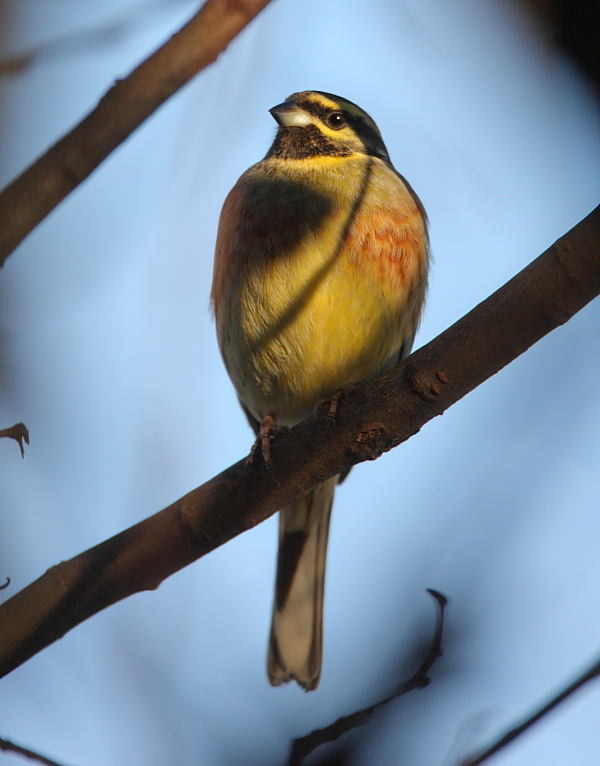
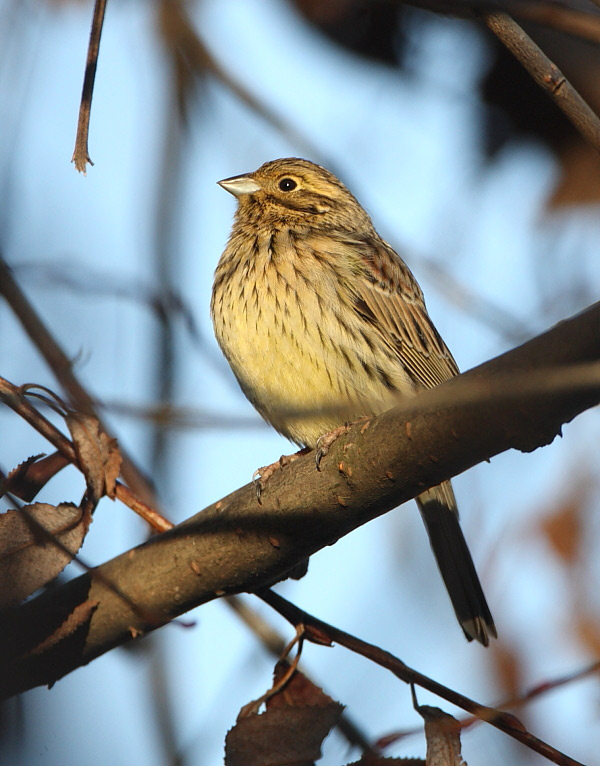
Male and female Cirl Bunting Photos: János Oláh
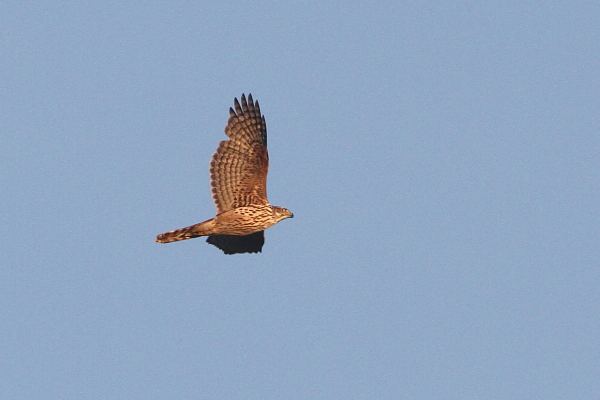
Juvenile Goshawk at Orsova Photo: János Oláh
Sakertour team
Long-eared Owls in January 2011
In addition to White-tailed Eagle photography our guests enjoyed terrific Long-eared Owl moments in January 2011. There are about 120 bird in Balmazújváros and some of them showing perfectly. They are somewhat special in recent days with overnigth temperatures dropping to -10 or even -15C and the owls have variable amount of frost on their feathers.
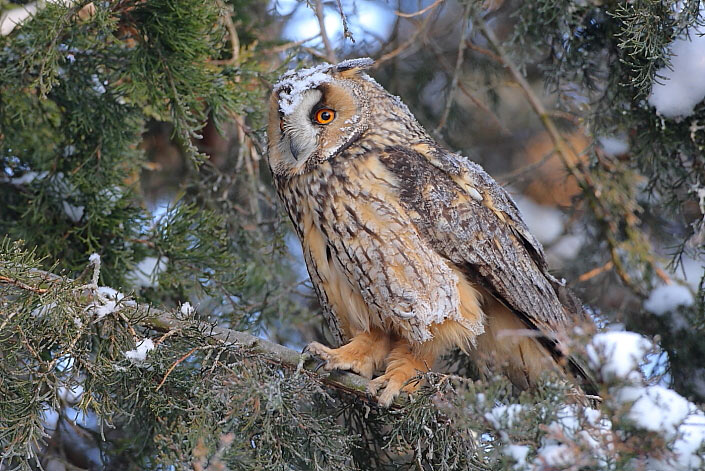
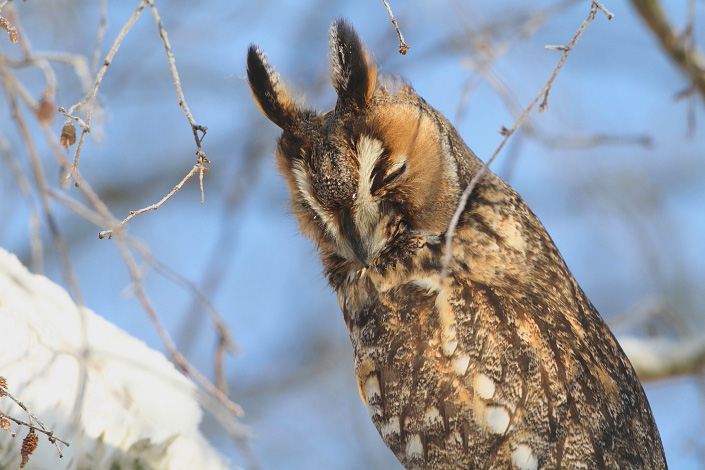
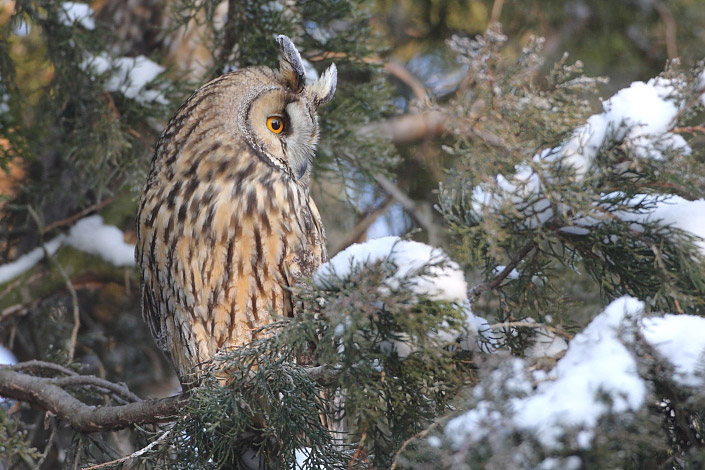
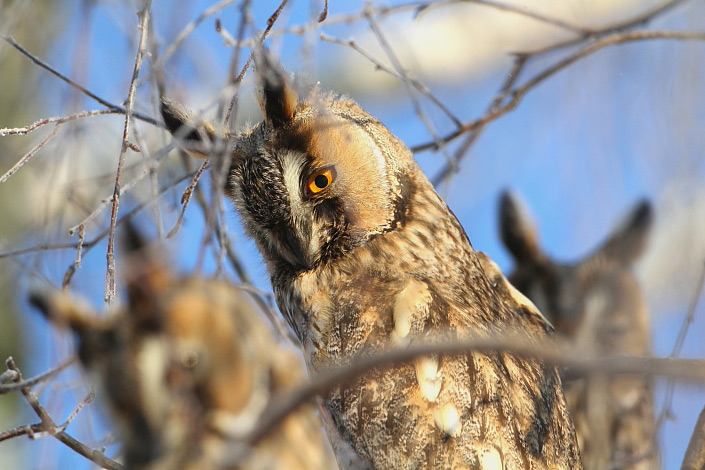
Long-eared Owls in January 2011 Photos: János Oláh
Sakertour team

